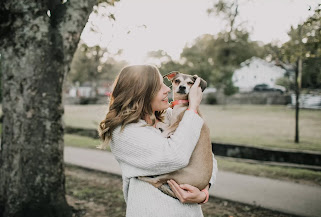Complete Guide to Canine Dental Care at an Oxford Vet Hospital
What Does Veterinary Dental Facilities Include?
Mississippi Care Oxford MS includes pet care specialities ranging from dentistry and vet dermatology to even oncology! If you are looking for instant oral care for your suffering baby, here is what you can come in for.
Pet Teeth Cleaning
Usually, animals are given a harmless anesthesia before this process starts. Pet teeth cleaning involves plaque and tartar removal followed by scaling and polishing.
However, many health care professionals use calming, manual methods to clean teeth when the animal is awake and responsive, too! You should come in for a cleaning at least once a month.
Finally, depending on the age, health, and species of your animal, the veterinarian may apply fluoride or sealants. Home dental care guidance is often provided post-procedure to maintain oral health.
Teeth X-ray and 3D Mapping
Teeth X-rays (dental radiographs) for animals capture images of the teeth and surrounding structures so that we can see hidden cavities and infections deep inside the gums.
This also helps identify issues like tooth fractures, hidden decay, or root abnormalities not visible during a visual examination.
3D mapping, also known as cone beam computed tomography (CBCT), is a more advanced imaging technique that provides detailed 3D images of the entire oral cavity. These days, this kind of testing has become a must before any major surgery or procedure!
Annual Oral Health Assessment
A complete dental assessment is usually carried out once a year for every regular vet patient. A typical Oxford vet Hospital prepares a lengthy, graphical report for such animals so that pet parents can have a detailed dental history covering the following things:
- Signs of plaque, tartar buildup, gum inflammation, or oral lesions.
- Dental results after scaling and polishing of teeth
- Teeth growth and measurement of canines among juvenile animals
- Radiographs to assess the health of tooth roots, detect hidden dental issues, and evaluate jawbone density
- Checking for signs of periodontal disease, tooth fractures, or abnormalities in the oral tissues
- Evaluation of the alignment of teeth and jaw to identify any malocclusions
High-Quality Animal-safe Dental Products
These days, veterinary healthcare professionals have made it a point to teach animal parents all they can about dental care at home.
Therefore, whenever you visit a hospital you have the freedom to consult your pet dentist for the best teeth cleaning tools, pet-friendly toothpaste, and essential dietary supplements that can encourage your baby to build better teeth health and jaw grip!
Final Thoughts
Oxford animal care hospitals provide high-tech dental assistance to all animal species. Not only are they equipped to handle unknown and critical conditions but they also have rare equipment in place that can facilitate veterinary surgeries, invasive procedures, and even cosmetic aid! Professionals working at these institutions take extra care to provide your fur baby with the right ambiance and fund human interaction throughout the process.



Comments
Post a Comment